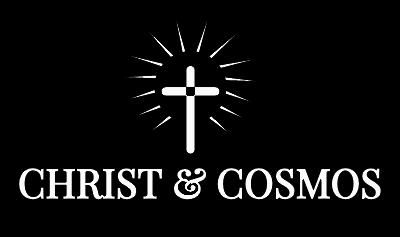After Modernity… What?! Part 4: Against Accommodationism: What the Church Fathers Can Teach Us About Engaging the Modern World
This is the fourth installment in a five-part essay series. It may not make much sense out of context. To view the previous installment, click here. To view the first installment, click here.
THE FATHERS AND PHILOSOPHY
I gave Oden a hard time in my last post, but he was a polemicist – he can handle it. Besides, this is friendly criticism – I am a real admirer of Oden’s work. But I am definitely not an admirer of his too-dismissive attitude towards contemporary philosophy. This, as I have said, is contrary to the spirit of the best church fathers.
They were not afraid to use philosophy – philosophy that was contemporary with themselves. They used Plato, Aristotle, Heraclitus, the Stoics and more to make arguments and articulate their faith before the Greek and Latin-speaking pagan worlds. The impetus of their work came from the Jewish Scriptures, of course, but their articulation was distinctly that of pagan philosophy.
If he truly wishes to go on with his wonderful Paleo-Orthodox project, then Oden cannot afford to say, with a shrug of his shoulders, “What hath Athens to do with Jerusalem?” In response to this, one must ask: “What, then, hath Jerusalem to do with Nicaea?”
Of course, Jerusalem does have to do with Nicaea – the very impetus of the Nicene controversy has at its core the divine status of the Messiah of the One God of Israel. But the ideas used to articulate this claim do not come from ancient Israel – they come from Greek metaphysics. The Nicene Creed claims that Christ is three hypostasies in one essence (ousia). One will not find such terms in the Old Testament.
Even in the New Testament Greek philosophical words are used to describe God’s Son: John’s identification of Jesus with the Logos in his famous prologue provides an especially poignant example. Paul’s approving quotation from the Stoic Aratus’ poem Phaenomena in Acts, when he gives a sermon on the Unknown God, is another example (“the sea and its harbors are flooded with Zeus, and in Him we move and have all our being” Aratus wrote) (Bradshaw 11, my emphasis).
Greek terminology was fundamental to the expression of the gospel from the very beginning. And this makes sense, as soon as one thinks of the historical context. Once God’s covenant was expanded to include Gentiles as well, one necessarily would have had to use extra-Biblical references. A pagan who cares nothing for (and knows nothing of) Israel’s history or Israel’s God will not be convinced by interpretations of Isaiah.
One had to speak to the people in a way that was sensitive to their culture, their language, and their framework, all while being true to the witness of Scripture. This was what Paul and others inevitably had to do, even for more Judaized Hellenes (and even probably for Hellenized Jews!).
This is method is also followed by many of the best church fathers. Some may have tended towards extremes in either direction – Tertullian in his anti-philosophy rhetoric (though he still used philosophical concepts), and Origen in his possible over-use of philosophy (though he is to this day a controversial case) – but many of the best and soberest Christian lights have taught us good policy in this regard.
THEOLOGIANS WHO USED PHILOSOPHY: SOME EXAMPLES
In his Confessions, Augustine carefully separates those good things that he learned from his studies of Platonism, and the things that he could only learn from the Scriptures – like the name of Christ, and that salvation is in Him. And then he very importantly states that those aspects of Platonism which contradict the Scriptures must ultimately give way to God’s Word, for that is the sure foundation of truth.
Nevertheless, what he learned from the Platonists is not to be despised; he continues to think their texts have much wisdom and are useful. Platonism and the gospel were to be seen, on many accounts, as complimentary: “I began reading and found that all the truth I had read in the Platonists was stated here together with the commendation of your grace” he writes, as he recounts his first reading of Paul (Augustine 130-1).
He hears similar praise of Platonism from Simplicianus, who congratulates Augustine (prior to his conversion) on discovering these texts, as “in all the Platonic books God and his Word keep slipping in” (Augustine 135).
Maximus the Confessor followed a similar path, taking the most philosophical of the Greek fathers (Origen and Pseudo-Dionysius) and placing them within a properly Christocentric, eschatological, and Creation-affirming framework.
Medieval Christians like Aquinas again did the same thing later (though controversy remains over whether he used philosophy too liberally).
THE REAL PROBLEM – ACCOMODATIONISM!
My point here is not that we should all become existentialist theologians in the vein of Rudolf Bultmann or process theologians and devotees of Charles Hartshorne. I actually have quite serious problems with both forms of theology.
But my problem with those two is not that they have utilized contemporary philosophies to express the gospel. Rather, the problem is their accommodationism, wherein they force tradition to make room for the speculations of modern philosophers, rather than the other way around.
(To his credit, Oden notes this as the main problem as well – but he can nonetheless act as though any use of modern philosophy is accommodationism. That is what I take issue with.)
The problem is not the use of modern philosophy; it is, instead, the notion that “what is acceptable to the modern mind” should become the grand criterion for the truth of Christian dogma. We must establish the proper relationship between Christian dogmatics and philosophy.
Philosophy cannot be the horizon for what is acceptable in Christian dogmatics; instead, Christian dogmatics must be the horizon for what is acceptable in a Christian philosophy.
Thus when the Council of Chalcedon, for example, tells us that Christ’s person has two natures hypostatically united, let us proclaim this all our lives; but let us remember (as some refuse to do) that this formulation still leaves us with immense philosophical freedom in the way we will understand the person of Christ. After all, nature (physis) is by no means an obvious term. It was not even obvious in the day of the fathers – was this the physis of Heraclitus? Of Plato? Of Aristotle? Of the Stoics?
The council wisely never gives an answer – for this is not the place of dogmatic definition. The point of the council was rather to ensure both Christ’s divinity and his assumption of a human body – the two crucial points of Christology which guaranteed that we, body and soul, form and matter, etc. have been redeemed in Him, and our communion with God reestablished. The purpose of the council emphatically was not to demand that we use one, and only one, philosophy (though it might limit the philosophies we may use to a degree).
This is actually wonderful news. The Council - and every other ecumenical council with it - chose only to set the minimum parameters of what Christians must confess, given what the Incarnation and our salvation logically entail. We are free to fill in philosophical content that agrees with its dogmatic definition. This allows our philosophical content to undergo certain changes over time as new discoveries are made, or important arguments are rendered by great thinkers.
In other words, the Council doesn’t lock us in a worldview - rather, it sets the boundaries on Christian tradition, according to revelation. This is a very important point, and is fundamental to understanding the perspective of this website. Christ & Cosmos is not here to advocate a “Christian worldview”; it is here to advocate the living, moving, breathing tradition of the Christian faith, which can never be reduced to a single time period or philosophy.
In the next and final post of this series, I will talk briefly about the dangers of refusing to engage contemporary culture, language and thinking. And I will note how an appreciation of philosophy as a tradition of thought helps us avoid this mistake. Until then, I want to leave you with the following question: What do you think are the benefits and dangers of using contemporary thought for theology? Let me know in the comments below!
DAN TATE is a writer and blogger at Christ & Cosmos. A former atheist, he’s been surprised and amazed by the God of all things, and he’s passionate about sharing the gospel in ways that respond to contemporary concerns about theology, philosophy, spiritual practice, science, art, and more. A lifelong writer hailing from Upstate New York, he has a B.A. from Allegheny College, an M.A. from Syracuse University, and an M. Div. from Princeton Theological Seminary.




